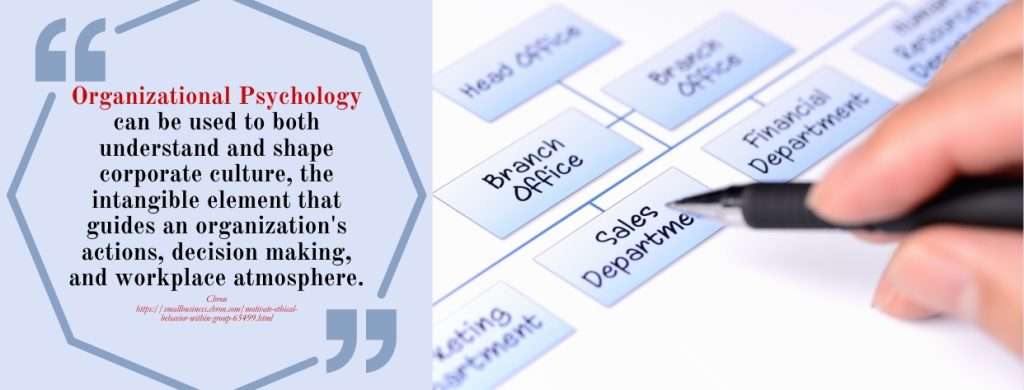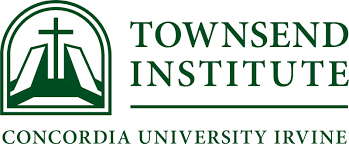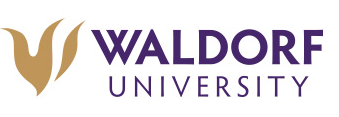Find Your Perfect School
Organizational Psychology, often called Industrial-Organizational (I-O) Psychology, focuses on the scientific study of human behavior within the context of organizations and workplaces and applying scientific principles to address problems in management, administration, human resources, marketing, sales, and related departments.
Without an organizational psychologist with the advanced expertise of human resources specialists and human resources managers, a company could miss crucial opportunities and face several challenges, such as inefficient hiring and employee selection, poor employee satisfaction and engagement, ineffective management and leadership, workplace stress, mental health issues, inadequate conflict resolutions and limited organizational growth.
Latest data from the Labor Statistics Bureau show that in May 2022 data, there is significant variability in earning potential within the I-O Psychology field, with the annual wage across the nation at the 10th percentile being $72,490 (a reflection of the wages for entry-level positions) and the 75th and 90th percentiles to be whooping $209,630 and $210,030 per year, respectively. This means that as you gain experience and expertise in the industry, you have the potential to earn significantly higher income.
Quick Summarization
To become an industrial organizational psychologist, a bachelor’s degree in Psychology is needed, at the minimum. You can then pursue advanced degrees, i.e., Master’s or Ph.D. graduate program, for more specialized roles. Fortunately, some schools are now specifically offering on-campus or online Bachelor’s in Organizational Psychology while others are offering a Psychology major with a concentration in Industrial Organizational Psychology program. These more specific programs often provide opportunities to accelerate your Master’s degree should you want to pursue further education.
Industrial-organizational psychologists can find employment in various settings like corporations, government agencies, consulting firms, non-profit organizations and academic institutions.
Methodology
If you’re looking for an online Bachelor’s in Organizational Psychology program to enroll in, you don’t have to go through the arduous task any longer! We made a convenient list of the outstanding degree programs offered by top-rated universities, colleges, and learning institutions nationwide.
Each of the online Bachelor in Organizational Psychology makes it to our list based on certain criteria, including the following:
- ·Offers courses that are available fully online or in a hybrid format to provide adult students the flexibility to complete their program while balancing work and personal commitments,
- Has a coursework that covers core topics in organizational psychology, including motivation, leadership, organizational behavior, and research methods to provide students with a well-rounded education, providing support to the most competent human resource managers,
- Employs faculty members with expertise in Organization Psychology and with relevant industry and research experience,
- Prepares students for further education, especially those intending to pursue a Master’s or PhD in Organizational Psychology,
- Promotes diversity and inclusion, both in its curriculum and in its approach to student support and engagement,
- Offers financial support and credit transfer options aimed at ultimately lowering the overall cost of undergraduate tuition and fees,
- Provides online students with a range of support services, including access to academic advisors, 24/7 technical support, online library and resource platform, and other services to help them succeed in their studies.
- Utilizes user-friendly, updated technology and learning management systems to deliver course content and facilitate communication,
- Has an approved accreditation from an industry-recognized organization to ensure it meets established academic standards and is respected by employers and other institutions.
Please visit our Methodology page to learn more about our process of selecting the best schools and programs.
10 Best Online Bachelor’s in Organizational Psychology
Townsend Institute at Concordia University Irvine
Townsend Institute at Concordia University Irvine offers a fully online Bachelor of Science in Organizational Psychology degree program that equips students with the capabilities to understand what drives people to perform at high levels in the workplace or within organizations. Under this program, students will personally learn from Dr. John Townsend, the Institute’s founder, leading Christian thought leader and New York Times bestselling author, psychologist, leadership consultant and relationship expert.
The program requires students to complete 120 units to graduate including 42 units of Industrial-Organizational Psychology courses like the following:
- Business Ethics
- Employee Motivation and Attitude Theory
- Human Resource Strategies and Applications
- Measurement of Human Performance
- Methods of Research and Statistical Analysis
- Organization Development and Change Theory
- Organizational Behavior
- Social Psychology
- Training and Talent Development
- Writing in the Workplace
Concordia University, a California-based Christian college, holds a WASC Senior College & University Commission or WSCUC accreditation.
The program features accelerated seven-week-long courses that allow Associate’s degree holders to obtain their Bachelor’s degree within 24 months.
University of Phoenix
Those who are passionate about championing a healthy workplace environment that promotes employee well-being and high performance can gain the necessary skills and knowledge to succeed in this endeavor by obtaining a Bachelor of Science in Industrial-Organizational Psychology degree from the online program of the Arizona-based University of Phoenix.
A total of 120 credits is required for students to obtain their I-O Psychology Bachelor’s degree. Core courses under this program include the following:
- Assessment Tools for Organizations
- Foundations of Psychology
- Group Dynamics
- Learning and Cognition
- Life Span Human Development
- Motivational Processes in Human Psychology
- Organizational Cultures
- Professional Ethics
- Research Methods
The program is developed in a way that students can earn career-relevant skills with every five-week or six-week course, which means that they don’t have to wait for years in order to apply their understanding of I-O psychology concepts to real-life scenarios.
The curriculum meets the educational requirements set by the Society for Industrial-Organizational Psychology (SIOP) and the American Psychological Association (APA).
The Higher Learning Commission or HLC has continually approved the accreditation of the University of Phoenix since 1978.
Purdue Global
Purdue Global offers its online Bachelor of Science in Psychology in Industrial/Organizational Psychology degree program that equips students with the expertise to assess and enhance the effectiveness of an organization, manage and motivate employees in the workplace and develop leadership skills. In this program, students focus on foundational business psychology topics complemented with specific industrial-organizational courses.
The curriculum requires a total of 180 credits for students to graduate including 48 credits of Core courses and 107 credits of Major courses. Some of the courses that the students have to take include:
- Attitudes and Motivation in the Workplace
- Introduction to Industrial/Organizational Psychology
- Personality Development
- Psychology of Leadership
- Public Relations Strategies
- Selection and Assessment in Organizations
- Strategic Communication
Students are also required to take a Capstone in Industrial-Organizational Psychology course for 6 credits.
Institutional accreditation from the HLC or Higher Learning Commission has been awarded to Purdue Global.
At Purdue Global, students can work toward a Master’s degree in Applied Behavior Analysis, Educational Psychology, Higher Education, Instructional Design and Technology, Public Administration and Criminal Justice, among other fields, while still completing their Bachelor’s in Industrial/Organizational Psychology. This Accelerated Master’s Degree Option allows students to save time and money when completing both their Master’s and Bachelor’s degrees.
Rider University
Based in Lawrenceville, New Jersey, Rider University is offering the 100% online Bachelor of Arts in Organizational Psychology program that provides students with a comprehensive understanding of how human behaviors affect an organization whether in private companies, government agencies, non-profit groups and many others. The program is essentially designed for working adults, and thus, provides students the flexibility to obtain their Bachelor’s degree while balancing work and personal commitments.
This BA in Organizational Psychology requires students to complete at least 121 credits to obtain the degree including 42 credits from Major courses such as the following:
- Introduction to Psychology
- Social Psychology
- Intro to Human Resource Management
- Team Management
- Employee Selection & Training
- Managing Workforce Diversity
- Professional/Strategic Speech
The University’s institutional accreditation is endorsed by the Middle States Commission on Higher Education for which the University is also a member.
Louisiana State University of Alexandria
The 100% online degree program of the Louisiana State University of Alexandria for its Bachelor of Science in Psychology- Industrial & Organizational Psychology provides students with a comprehensive understanding of business procedures, psychology methods and interdisciplinary studies to produce competent graduates.
This Bachelor in Science degree program requires students to complete 120 credit hours toward graduation including 31 credit hours of Core Major courses and 18 credits from Concentration courses. These courses include the following:
- Cultural Diversity
- Employee Selection and Placement
- Ethical, Legal and Professional Issues in Psychology
- Human Behavior in Organizations
- Human Resource Management
- Introduction to Abnormal Psychology
- Principles of Management
- Psychology of Judgement and Decision-Making
- The Psychology of Work: Industrial & Organizational Psychology
Liberty University has received SACSCOC (Southern Association of Colleges and Schools Commission on Colleges) accreditation.
Both first-time freshmen and transfer students with a transferable associate degree or higher are accepted to this program.
Southern New Hampshire University
The web-based Bachelor of Science in Business Administration degree at Southern New Hampshire University comes with a concentration in Industrial Organizational Psychology option so that students are equipped with the ability to apply psychology methods in business settings to address organizational problems at both individual and group levels.
This Business Psychology program requires students to complete 120 credits toward graduation including 42 credits of General Education courses, 30 credits of Business core courses and 15 credits of Concentration courses. Business core courses include Financial Accounting, Business Law and Introduction to Marketing.
On the other hand, Concentration courses include Introduction to Psychology, Social Psychology, Cross-Cultural Psychology, Cognitive Psychology and Industrial-Organizational Psychology.
Students have the opportunity to further customize their Bachelor’s degree with 33 Free Elective credits (equivalent to 11 courses) so they can best reach their professional and personal goals.
The Accreditation Council for Business Schools & Programs has programmatically accredited this Business degree with I-O Psychology concentration. Furthermore, the New England Commission of Higher Education or NECHE recognizes SNHU’s institutional accreditation.
University of Massachusetts Global
The University of Massachusetts Global is offering an online degree program on Bachelor of Arts in Psychology with an Industrial/Organizational concentration that will equip students with the capabilities to effectively promote productivity and boost employee retention within the organization.
This BA degree program requires students a minimum of 120 semester units to graduate including 48 for core courses and 12 for Industrial Organizational Concentration courses. Some of these courses include the following:
- Introduction to Career Development
- Introduction to Statistics
- Abnormal Psychology
- Cross-Cultural Psychology
- History and Systems of Psychology
- Organizational Psychology
- Personnel Psychology
- Physiological Psychology
- Scientific Writing in Behavioral Social Sciences
- Social Psychology
The WSCUC Senior College and University Commission acknowledges the University’s accredited status.
This I-O Psychology degree program accepts fresh high school graduates and GED certificate holders as well as transfer students with 12 or more transferable credits.
Waldorf University
Waldorf University offers an online-only degree program on Bachelor of Arts in Psychology – Concentration: Industrial Organizational Psychology, which will provide students with a comprehensive understanding of the application of psychology in corporate settings. This program will prepare students for careers in organizational and business consultancy as well as for further studies at post-baccalaureate levels.
This Bachelor’s degree program requires students to complete 120 credit hours toward graduation including 30 credits of Major courses. The 120-credit requirement also includes 12 credits of I-O Psychology Concentration courses, which are the following:
- Intercultural Management
- Consumer Behavior
- Industrial Organizational Psychology
- Psychological Assessment
With its online programs based in Alabama and residential programs in Iowa, Waldorf University is accredited and approved by the Higher Learning Commission. The Iowa College Student Aid Commission authorized Waldorf to become part of the National Council for State Authorization Reciprocity Agreements (NC-SARA) for its distance education programs.
Columbia Southern University
Students under the online degree program of the Bachelor of Science in Psychology with an Industrial/Organizational Concentration offered by Columbia Southern University will explore the application of psychology principles and theories in industrial and business environments to improve working relationships, employee productivity and operational procedures.
A total of 120 credits are required for students to graduate from this Bachelor’s degree program. This requirement includes 36, 12, and 36 semester hours of major courses, concentration courses, and general education courses, respectively.
Some of the I-O Psychology concentration courses include:
- Human Relations and Development
- Leadership
- Managing Diversity in Organizations
- Team Building and Leadership
- Negotiation/Conflict Resolution
The University meets the SACSCOC accreditation standards.
Colorado Technical University
Colorado Technical University offers an online degree program on Bachelor of Science in Psychology – Organizational Behavior, which prepares students for psychology careers in the business world.
By understanding the psychology of organizational behavior, graduates will be capable of performing crucial functions in business settings such as developing human talent and resources, encouraging personal growth, promoting organizational improvements, addressing change and coaching/mentoring, among others.
The program requires at least 182 credit hours for students to obtain their Bachelor’s degree including 88 credit hours of Core courses and 28 credits of the Organizational Behavior Concentration courses. These courses include the following:
- Orientation to the Organizational Behavior Profession
- Adult Learning: Corporate Training and Development
- Communication and Interviewing Skills
- Community Psychology
- Consulting Skills
- Creating Change in Individuals and Organizations
- Developing Human Resources
- Diversity
- Leadership
- Stress Management
- Advanced OD Skills: Organization Interventions
Colorado Technical University holds an institutional accreditation from the Higher Learning Commission. The State of Colorado, Department of Higher Education, and Colorado Commission on Higher Education, have also authorized the University to award degrees.
Learning Outcomes of Bachelor in Organizational Psychology Programs
Learning outcomes, also called educational or program outcomes, are statements regarding what is expected from students after completing their Bachelor in Organizational Psychology programs.
Some of these statements are summarized below:
Theory and Knowledge
- Explore major concepts, theoretical perspectives and current trends in Organizational Psychology.
- Develop a deep understanding of organizational and career development, decision-making, human factors, consumer behavior, group dynamics and job analysis.
- Demonstrate a strong foundation in the major concepts, theoretical frameworks, empirical discoveries, and historical evolution within the field of psychology.
Research and Methodology
- Design and implement organizational assessment instruments for individuals and groups.
- Gather, analyze and interpret data effectively.
- Prepare comprehensive research reports and proposals for interventions.
- Plan, conduct and critically evaluate psychological research in organizational and work environments.
- Emphasize ethical research practices and diversity considerations.
- Demonstrate competence in research design, data analysis and results interpretation.
Communication and Presentation
- Defend research findings through well-organized, written and oral presentations.
- Communicate research conclusions with critical reflection.
- Integrate individual perspectives with psychological concepts and theories in written work.
- Analyze and critique scholarly articles from peer-reviewed psychology journals.
Practice and Application
- Apply Industrial/Organizational psychological principles to manage human work performance and interactions.
- Integrate psychological concepts, theories and ethical considerations into real-world cases and situations.
- Analyze how human relations impact development within organizations.
- Assess the impact of people and processes in organizational settings.
- Foster self-awareness, personal growth and leadership skills.
- Apply scientific reasoning to psychological research and the human experience.
- Promote attainment of post-graduation goals through internships, organizational research and leadership opportunities.
Ethics and Multicultural Diversity
- Explore the ethical dimensions and multicultural considerations relevant to professional practice in psychology.
- Integrate diversity and ethical considerations into psychological practices.
- Demonstrate familiarity with basic ethical and professional knowledge in psychology.
Core Competencies and Professionalism
- Explain the Society for Industrial Organizational Psychology’s (SIOP) core competencies for graduate programs.
- Demonstrate professionalism and ethical behavior in all psychological practices.
Accrediting Organizations for I-O Psychology Degree Programs
Accrediting organizations and associations often play a crucial role in maintaining high standards of education and practice in the field of Industrial-Organizational Psychology degree programs. While there may not be specific accrediting organizations exclusively for the I-O field, several broader associations and accreditation bodies are relevant.
Society for Industrial and Organizational Psychology (SIOP)
SIOP is a professional association for Organizational Psychologists but it does not provide accreditation. However, it offers resources, guidelines and information relevant to the field.
American Psychological Association (APA)
The APA accredits doctoral programs in psychology including those with a focus on Organizational Psychology. APA accreditation is highly respected and important for individuals pursuing a Ph.D. in Organizational Psychology.
Accreditation Council for Business Schools & Programs
ACBSP accredits business programs, which may include Organizational Psychology programs offered through business schools.
Council for the Accreditation of Educator Preparation
For those interested in Organizational Psychology programs with an educational focus, CAEP accredits teacher preparation programs including those in educational psychology.
Regional Accrediting Agencies
Regional accrediting agencies may accredit colleges and universities depending on the institution. Examples of regional accrediting agencies include:
- Higher Learning Commission
- Middle States Commission on Higher Education
- Western Association of Schools and Colleges
It’s essential to ensure that the institution where you plan to study has regional accreditation, as this is generally a requirement for federal financial aid and is associated with academic quality.
State-Specific Organizations
Students who plan to apply their Organizational Psychology degree in a clinical capacity or in offering psychological services should also be aware of state-specific licensing boards or regulatory bodies, as these entities may have specific requirements and standards.
Debunking the Top 5 Common Misconceptions on Organizational Psychology
Industrial-Organizational Psychology is a fascinating field that deals with understanding human behavior in the workplace but it’s often misunderstood. Here are the top five common misconceptions about Organizational Psychology:
It’s all about hiring.
While Organizational Psychologists play a role in employee selection, their work extends far beyond hiring. Their goal is to create healthier, more productive work environments, which means that they also address other issues like leadership development, workplace culture, diversity and inclusion, employee engagement and organizational change.
It’s all about therapy.
While organizational psychologists address workplace issues, which may look like they’re therapists for employees, their focus is actually on enhancing organizational effectiveness and not providing counseling or therapy. They analyze data, develop strategies and improve workplace processes.
It’s exclusive to large corporations.
In reality, organizations of all sizes including startups, non-profits and government agencies can benefit from the expertise of Organizational Psychologists. Smaller organizations can gain valuable insights into employee engagement, leadership development and team dynamics.
Psychologists only deal with mental health.
Organizational Psychologists do not typically address mental health issues in the clinical sense. Instead, they focus on improving work-related factors like job satisfaction, motivation and performance. Their approach is preventative and geared toward enhancing well-being.
The principles of Organizational Psychology are just common sense.
While some concepts may seem intuitive, Organizational Psychologists apply scientific methods and evidence-based practices to uncover hidden dynamics, quantify results and offer data-driven recommendations. Their work goes beyond intuition to provide empirical insights into workplace challenges.
Frequently Asked Questions
How long does completing an online Bachelor’s in Organizational Psychology take?
The duration of online Bachelor’s programs can vary, but most are designed to be completed in about four years if taken at a traditional pace. Some programs, however, offer accelerated options that allow you to finish earlier by taking more courses per term or attending year-round. Be sure to check with the specific program for details on their scheduling options.
Can I work while pursuing an online Bachelor’s in Organizational Psychology?
Yes, you can, as online programs are designed to offer flexibility that allows you to balance your studies with work, family and other commitments. Depending on the program, you can access course materials and complete the course assignments at your own pace or within a given time frame. However, managing your time effectively is essential to ensure academic success.
How much is an online Bachelor’s in Organizational Psychology?
Tuition costs for online programs can range from around $8,000 yearly at non-profit institutions to over $15,000 yearly at private universities. More specifically, below is the list of per-credit tuition costs for the next Start Date this 2023 in some of the schools we covered in our list.
- Concordia University – $495/credit
- University of Phoenix – $398/credit
- LSUA – $325/credit
- SNHU – $330/credit
- UMass Global – $500/credit
- Columbia Southern University – $270/credit
Make sure to check the school’s official website for updated costs. Furthermore, remember that you may have to budget for additional fees like technology, course materials, and other charges. Fortunately, some schools don’t charge admission and course materials fees.
There are also many other ways to lower your costs in online programs, such as the following:
- Public institutions often offer lower tuition rates for in-state residents
- Federal loans and grants, including the Free Application for Federal Student Aid (FAFSA)
- School grants and scholarships
- Transfer credits for students with an associate degree or previously owned college credits.
Key Points to Ponder
- Organizational Psychology is the study of human behavior within a group or organization and the application of psychological methods to address organizational issues.
- While some schools offer a straightforward Bachelor in Organizational Psychology degree program, others offer this field as a specialization or concentration of the Psychology or Business Administration Major degree.
- Graduates with a Bachelor of Organizational Psychology have job opportunities beyond the traditional Human Resource specialists. These include organizational development consultants, talent management analysts, and workplace diversity and inclusion experts.
Additional Information:











